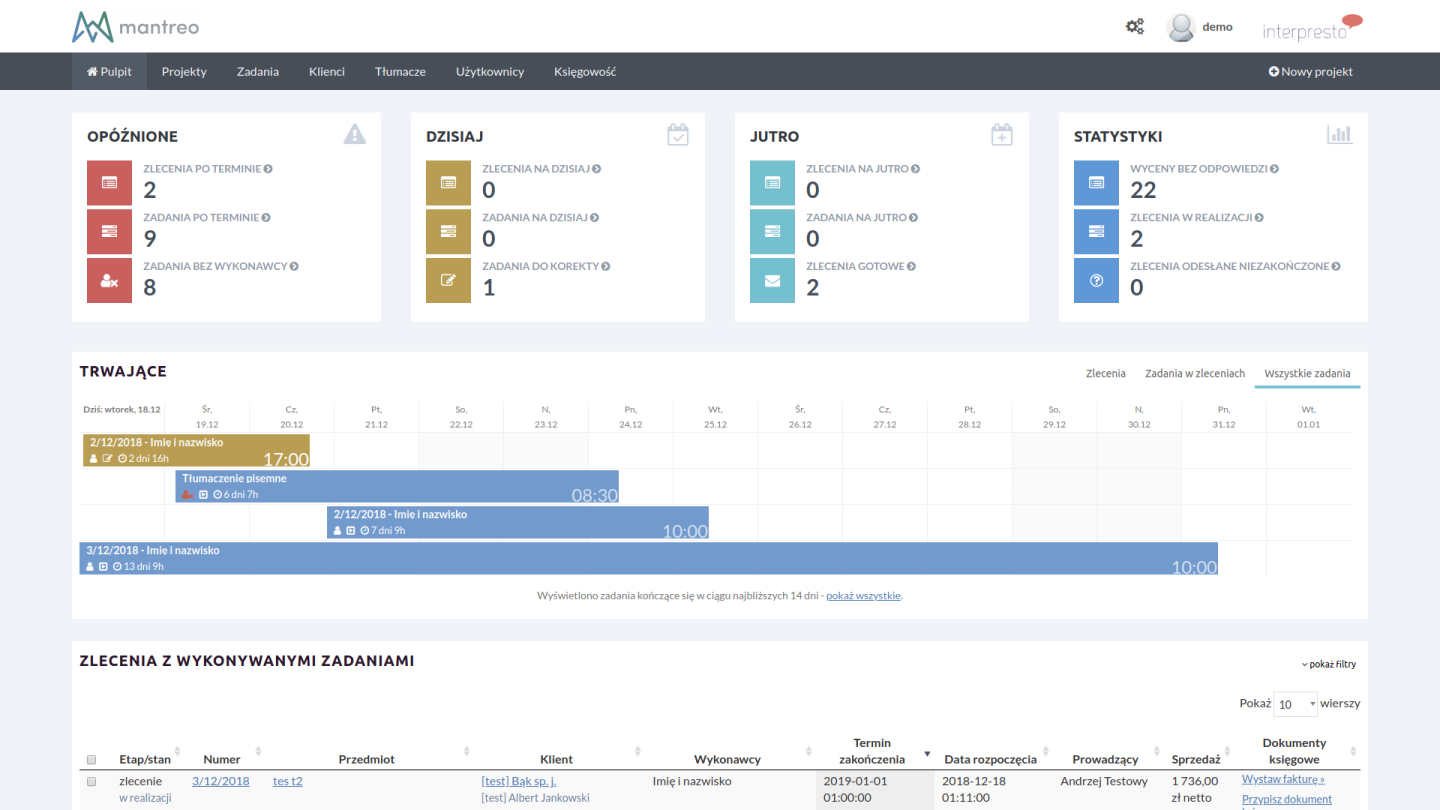
During the pandemic, it's harder to find a more bearable topic than remote working. Many entrepreneurs and self-employed people, including translators and translation agencies, think about how to perform all their responsibilities remotely without reducing work efficiency and profits. However, technical constraints often stand in the way to the full success. Overcoming them is a very tempting prospect, as it guarantees survival on the market, when online activity means to be or not to be for many companies.
In this article one will discuss all noteworthy tools for remote working, which will both enable efficient cooperation in the team and help to distance the competition. Let’s begin!
All Is About Communication – Text and Voice Communicators
Since good communication is at the heart of any successful business relationship, it is worthwhile to focus on the technological solutions that will enable us to create smoothly functioning and efficient infrastructure in this area. There are many solutions on the market that differ both in functionality and price, so that the final choice can be made according to one' s preferences.
The most popular communicator for companies for years has invariably been Skype. The program enables leading text, audio and video conversations with two or more people, so one can easily arrange a team meeting, brainstorming, or just hang out for a virtual coffee. It is also noteworthy that Skype can be installed on a smartphone, desktop computer, laptop, or used via browser.
Another communicator that works perfectly for business communication is Zoom. To start a conversation, one needs to create a dedicated room, and then invite users by sharing a password generated by the app. The paid version of the software offers a very interesting solution for conference interpreters, i.e. a possibility to perform simultaneous interpretation into different languages. Additionally, in the room one can either contact others in a general chat or create separate rooms and talk to the selected participants in private. The application can be used on a desktop, laptop, tablet and smartphone.
One can choose also a communicator dedicated to teamwork - Microsoft Teams, which replaced the business version of Skype (Skype for Companies). In addition to the standard features such as group and individual audio and video calls, text message exchange and file transfer in private and group chats, the application also provides a very useful screen sharing option, which will allow, among other things, to quickly and efficiently solve any technical problems.
Since online communication tools are a wide-ranging subject, in addition to the three most popular solutions, one can also try Signal, communicator providing encrypted conversations and more privacy, WhatsApp or Viber, applications adapted for use on mobile devices, Slack, Google Hangouts (or its business version – Google Meet) and many, many more.
Translation Infrastructure
The basic tool of most of translators is CAT. Without it, smooth cooperation with Project Managers based on sharing translation memories, glossaries and source files, would not be possible. However, to be able to start working in this type of program, one must first create a project package, and this often requires performing quite advanced OCR for non-editable files.
In small translation agencies, often only one workstation is equipped with the appropriate software, so if there is a need to work from home on a computer that does not have such an application, one can use less advanced but also effective programs available online, such as FineReader Online, OCR.Space or Soda PDF ONLINE. However before starting work, one should consider checking the data storage and collection policies of these services.
After performing the initial OCR, set of office applications that enables “cleaning” the received output and reformat the file accordingly, will be necessary. One of such products is Microsoft Office – a solution from Microsoft that perfectly fits into the remote workflow thanks to a set of applications and services with Internet access, the Office 365. Work results are stored in a cloud with an access for selected users.
If investing in this solution is not an option, one can also use the Google Drive, which offers similar solutions with poorer functionality for free. Once the files received from the client are ready to be translated, but their size significantly exceeds that allowed by the mail server, it is worth considering to use tools such as wetransfer.com in the pro version, which allows the transfer of up to 2 GB of documents. The application allows to quickly and easily send a link to a recipient, who just needs to click on it to download the file directly to the computer.
Among the solutions enabling fast and free file exchange it is also worth to mention Dropbox, iCloud Drive, OneDrive, pCloud.
Organisational background
Most self-employed translators and small translation agencies use CRM and ERP solutions. CRM is a software for managing relations with current and potential contractors. It consists of solutions, procedures and tools necessary to conduct high quality cooperation with customers and partners. Its primary goal is to create a kind of “business memory” of the company, a collection of data and information, which allows for the analysis of the activity on unprecedented scale and maximum personalization of the business relationship. This allows for the creation of individual and more accurate offers, thus contributing to the outcome.
Companies that support a wide range of activities can use ERP system, that integrates all business processes in the enterprise. It helps to organise and automate all processes taking place in the company, both those related to trade, logistics, accounting, as well as HR and payroll. It will surely be a great solution for language service providers who make translations, run language courses, provide consulting and export services, etc.
And when it comes to translation, our proprietary software, which not only combines the versatility of ERP systems and customer-focused approach of CRM systems, but includes also solutions dedicated to the translation industry. Mantreo is an intelligent software for project management and remote work that helps to save money as it can successfully replace programs for managing projects, file sharing, invoicing and managing relations with clients. It also provides OCR and office suite functions. Moreover, Mantreo can be connected to a mailbox, thus allowing for a quick conversion of the selected message to a quote.

The most noteworthy features include intuitive operation provided by an interface adapted to the needs of professional translators and functionalities resulting from a deep market knowledge in the field of solutions for small and medium-sized translation agencies that cover a possibility of creating quotations according to individual price lists, managing tasks and databases of translators and clients, supplier invoicing and billing. In other words, this tool allows Project Manager to select a perfect translator for a job of a specific nature and with limited budget. The system automatically finds in the database experts in the indicated field, who offer their services for rates that fit the estimated range.
When it comes to self-employed translators, Mantreo offer additional benefits, such as possibility to check the price list for the client sending the query, to use of a predetermined rate in the pricing and assign special instructions and glossaries to an indicated client. In addition, the tool saves and stores data on all transactions carried out, so that issuing a summary invoice at the end of the month is only a few mouse clicks away, just like checking payment status.
The future of remote work
Does the remote work represent the future of the translation industry and business activity as whole? According to many experts, yes. This type of cooperation allows one to use the time more efficiently, reduce costs and associated charges, and increase personal productivity.
But to enjoy the profits, it is necessary to invest first. Besides new equipment, is worth keeping in mind that employees need trainings and courses in the field of personal development, which will allow them not only to efficiently operate the infrastructure created by the employer, but also to mentally fit into the new work environment.






Comments